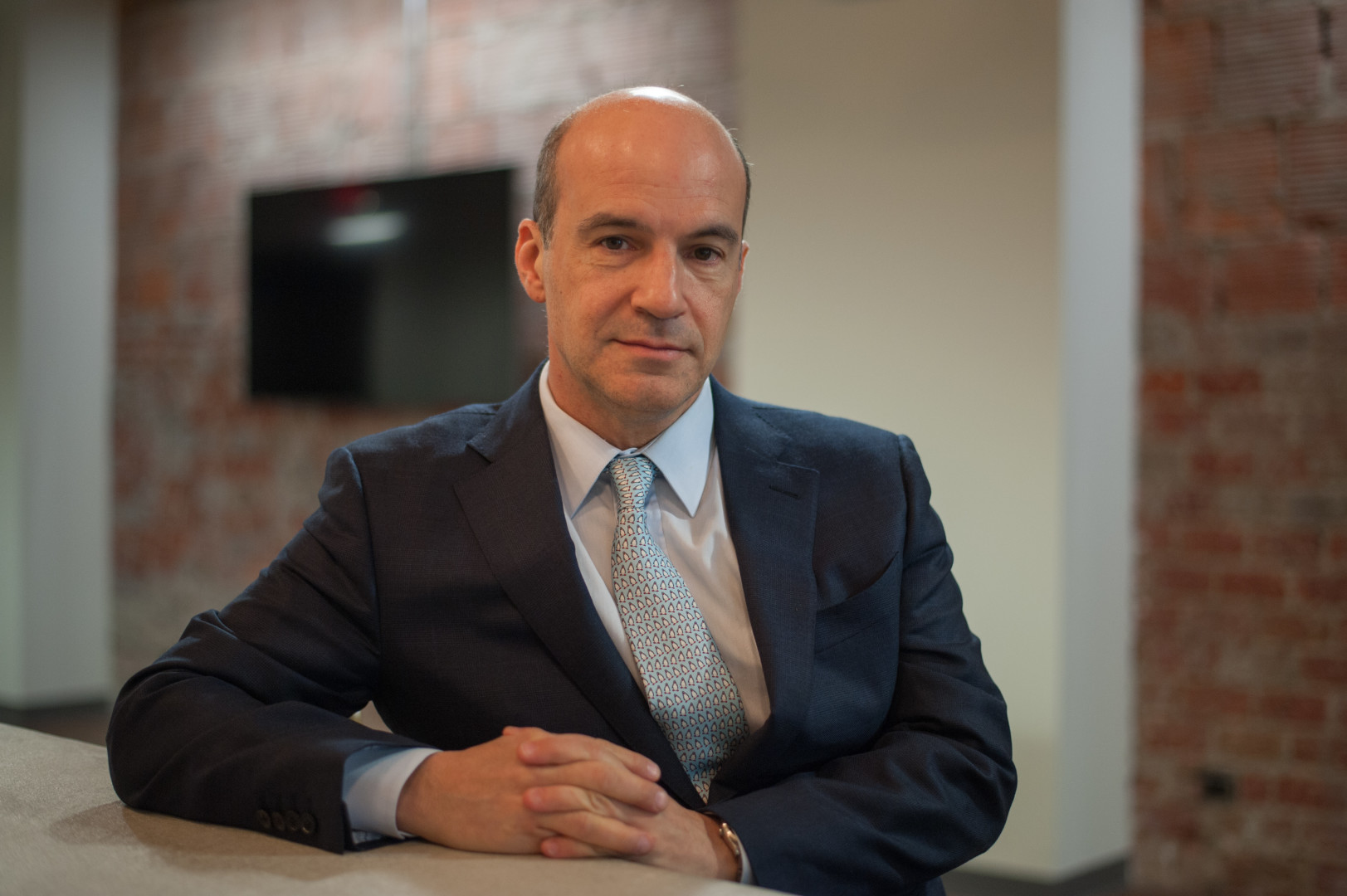The problem with Martin Shkreli, according to Dr. Peter Bach, is he’s too good at what he does. “He’s straight out of central casting,” Bach said. The hedge fund manager-cum-pharma-price-gouger is so cartoonishly sinister that he obscures an essential truth about the drug business, Bach said: It exists to turn a profit.
“He’s just a distillation of the industry behavior in its purest form. It’s all about the stockholders.”
Bach, director of Memorial Sloan Kettering’s Center for Health Policy and Outcomes, doesn’t mince words. He’s on the small side, but he squares off like a boxer. He’s also a formidable opponent. Just last week he authored a study that reverberated around health wonk world, arguing that $3 billion is wasted because drug companies sell expensive cancer therapies in one-size-fits-all vials that have higher doses than many patients need. Days later, two Senate Democrats called for the Food and Drug Administration to investigate.
Bach talks at a gallop, and he doesn’t pause for questions, casually tossing out industry jargon such as “indication-specific pricing.” That wouldn’t really distinguish him in a town where you can hear “Part D” and “value-based care” in happy-hour chatter. But Bach, an English major who reads literary luminaries Salman Rushdie, James Salter and Wallace Stegner alongside medical journals, is more grounded than the average wonk. Maybe it’s being a single dad to a teenaged boy. Maybe it’s the loss of his wife to breast cancer in 2011, heartbreakingly chronicled in the New York Magazine piece “The Day I Started Lying to Ruth.”
Something in Bach smolders when he talks about the “monopoly” drug companies enjoy. Because treating illness isn’t just the province of profit, or a responsibility to shareholders – it’s a social imperative. “If you have a treatment that should eradicate infectious disease, you should eradicate it as quickly as possible,” he said.
And then he ignites. “The notion that this is a normal market, where competition will work, is foolhardy,” he said. “I’m getting a little sick of arguing that point. There’s so much empirical evidence that there’s nothing competitive going on here at all.” He said industry apologists will point to Sovaldi and Viekira Pak, two blockbuster Hepatitis C drugs introduced within years of each other.
But with pills priced around $1,000 per, Bach dismisses the notion that competition leads to lower prices. “They want specialty drug, rare disease prices for a condition that affects 35 million people,” Bach said. “To say the least, that bums me out.”
And yet, it’s hard to tell if he’s angry or just impassioned. He’s an academic, not an advocate, and he sees drug companies as rational actors working in their own best interest. “Pharmaceutical companies aren’t evil,” he said: “They’re for-profit companies in a system that’s been designed for them. They’re doing what they should do.” And they’re only part of the problem: The pricing conundrum is systemic, with payers and providers sharing part of the blame.
But that clearly hasn’t stopped him from taking on the pharmaceutical industry. In addition to his recent research on cancer drug dosing, Bach in 2012 co-wrote a New York Times op-ed titled “In Cancer Care, Cost Matters,” which flogged cancer drug Zaltrap for its astronomical pricing. With his co-authors, Bach declared Memorial Sloan Kettering’s intention not to offer the drug to patients. The story landed Bach on 60 Minutes, and led to Sanofi cutting the drug’s price by half.
Thanks to Shkreli and Turing, lawmakers are holding hearings on drug pricing and aspiring presidents are stumping on the issue. Bach lives in Brooklyn, but he’s in the District of Columbia every week. He meets with lawmakers regularly, though he declines to say whom, exactly, beyond “both sides of the aisle.”
Bach lauds the Obama administration’s drive to pay for care based on quality, not quantity, but he says it will require a host of smaller reforms to work – such as the aformentioned “indication-specific pricing.” Indications are what the Food and Drug Administration identifies as possible uses of a drug. If a drug treated strep throat but was also proven to prolong the life of breast cancer patients by one year, it would have two indications – but it would be priced for one. You can probably guess which.
“In a value context, it’s two different drugs,” he said – and they should be priced accordingly.
Ask Bach why he does it, and you’ll get a rare pause for breath. “I think, at some level, what drives me is my research on heroin treatment.” As a resident at Johns Hopkins Hospital in Baltimore, he saw a broken system for dealing with the drug. Addicts were prosecuted and shoved into the shadows, where they shared dirty needles and spread disease. Methodone clinics would have fixed this, but they were few and far between in Charm City.
“That just seemed idiotic to me,” he said. “You save money, it saves lives, they don’t share needles, they don’t pass STDs.” The medical solution was evident, but the policy problem wouldn’t budge.
As for drug pricing, he’s hoping the industry will self-regulate sooner than later. The flux of public opinion and congressional scrutiny will spook shareholders, he said, who crave stability over all – “They need certainty far more than they need prices at any level.”
And while election-year politics are somewhat to blame for pharma’s battering in public esteem, Bach says it’s at least partially earned.
“Public opinion of pharma is far lower than where it should be in terms of what it does for public health,” he said, “and exactly where it should be when it comes to pricing.”
